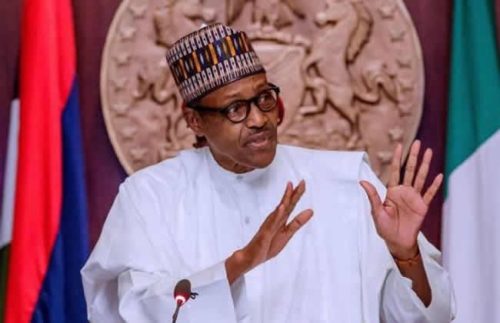
On May 30th, 2019, President Muhammadu Buhari declined assent to the bill seeking the establishment of the Nigerian Maritime University (NMU), Okerenkoko in Delta State.
President Buhari had cited funding provision for the institution, which he said are grossly excessive as the major reason for his refusal to sign the bill passed by the 8th National Assembly. He also said the proposed funding will disrupt the operations of a number of government agencies and institutions.
A copy of the Senate bill which showed the breakdown of the funding provisions and obtained by SHIPS & PORTS, showed that 15 percent of the total annual budget of the Nigerian Maritime Administration and Safety Agency (NIMASA) and 10 percent of such sums in the Cabotage Vessel Financing Fund (CVFF) would serve as part of funding for the institution.
Additional funding for the University as stated in the Senate bill include 1 percent of the total annual budget of Federal Ministry of Petroleum Resources; 0.5 percent of the total annual budget of Nigerian Liquefied Natural Gas; 0.3 percent of the total annual budget of all oil producing companies operating in the Niger Delta area and from the Tertiary Education Trust Fund (TETFUND).
Industry stakeholders who spoke with SHIPS & PORTS on the development threw their weight behind the President Buhari’s decision to decline assent to the bill.
According to a frontline master mariner, Captain Adewale Ishola, the funding provision for the institution, if approved, will only put money in the hands of few individuals at the detriment of the agencies.
“With this revelation, nobody should blame the President for not signing the bill. If the bill is assented to, it means there will be too much money in some people’s hand. Those kicking against the President refusal to sign the bill think the President did not just want to sign it, but that is not the case. How can they take 15 percent of the total budget of NIMASA when Maritime Academy of Nigeria (MAN), Oron is getting five percent already? Did they want to cripple the agency because of one university?,” he quizzed.
Vice President, Association of Marine Engineers and Surveyors (AMES) Engr. Emmanuel Ilori, said it will amount to misappropriation of the CVFF, set up to develop indigenous shipping, if part of the proceeds is spent on the maritime university.
He said, “It is a misappropriation of policy if we want to use part of the CVFF to fund the maritime university and I think the President has taken a right decision on this by declining assent to the bill.
“Is it in NIMASA’s place to be funding universities when we already have MAN, Oron that gets five percent and it is apparently being starved of its funding from NIMASA, yet they want to spend another 15 percent on a university that will not be producing dedicated seafarers?
“We should be seeking to buy more vessels so that we can provide training facilities for the Nigerian train cadets coming out of ORON instead of allowing the cadets to be going round the street. We should be empowering them using the CVFF and not to fund the maritime university. There are still reactions to the university being set up, so if Mr. President in his wisdom has taken the decision, then we need to respect the decision. I think the President is justified for declining assent to the bill.
“If they give a fraction of all these funding provision to MAN, Oron, it will be a different ball game entirety and meanwhile ORON has been established over 30 years ago. The academy in Egypt is thriving, the one in Philippines, Ghana are both thriving while the one in Nigeria with the highest volume of cargo and better potentials to develop quality seafarers which we can be exporting like the Philippine does is still crawling. So why the proliferation of universities when we need to strengthen the existing ones that will have, including Oron?.”